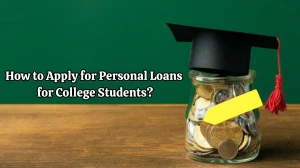
Best Student Loans of October 2023
The best student loans include Earnest, Juno, Credible, SoFi, Iowa Student Loan (ISL), Ascent, Education Loan Finance (ELFI), Splash Financial, and Funding U.
by Kowsalya
Updated Oct 09, 2023
On This Page
Best Student Loans of October 2023
It's advisable to prioritize federal student loans and seek free financial aid to cover your education costs. However, in cases where these options fall short, private student loans can help bridge the financial gap.
These loans operate differently from conventional ones, so understanding their nuances is crucial. While selecting a loan with a low-interest rate is a good initial step, the best student loans also consider factors like flexible repayment options, generous financial assistance programs, and the potential for co-signer release.
Here is the list of Best Student Loans:
| Category | Lender |
|---|---|
| Best Overall | Earnest |
| Best for Negotiating Low Rates | Juno |
| Student Loan Marketplace | Credible |
| Best Parent Student Loan | SoFi |
| Best for Graduate School | Iowa Student Loan (ISL) |
| Best for International/DACA Students | Ascent |
| Best Average Interest Rate | Education Loan Finance (ELFI) |
| Best for Student Loan Refinance | Splash Financial |
| Best for Students Without Co-Signer | Funding U |
Best Overall: Earnest
Pros
- Offers a $100 rate-match guarantee.
- Provides customizable loan and repayment terms.
- Allows loans for part-time students.
Cons
- Does not offer co-signer release.
- Not available to residents of Nevada.
- Limited parent student loan repayment options.
Eligibility Requirements
- 650 or higher credit score.
- Minimum annual income of $35,000.
- U.S. citizen or permanent resident.
- At least three years of credit history.
- Available in all U.S. states except Nevada.
- No prior bankruptcies and no accounts currently in collections.
- At least two months' worth of emergency fund savings (only for co-signed loans).
Best for Negotiating Low Rates: Juno
Pros
- Offers a rate-match guarantee.
- Features a long nine-month grace period.
- Potential for obtaining the lowest student loan rates.
Cons
- Limited choice of lenders.
- The negotiation process can be somewhat confusing.
Eligibility Requirements
- 650 or higher credit score.
- Some lenders may not be available in all states.
- Accepts U.S. citizens, permanent residents, international students, and DACA students.
- Must be of the age of majority.
- Enrollment in a four-year, Title IV, non-profit university or college is required.
- Pursuing a bachelor's or graduate degree.
Student Loan Marketplace: Credible
Pros
- Offers very low rates.
- Provides a best-rate guarantee.
- Features a transparent lender network.
Cons
- Loan options may differ.
- Qualification may vary with different lenders.
- Only partners with eight lenders in its network.
Eligibility Requirements
- Available in all 50 states.
- 640 or higher credit score.
- U.S. citizen or permanent resident.
- Certain requirements may vary by partner lender.
Best Parent Student Loan: SoFi
Pros
- Offers generous member benefits.
- Provides numerous options for payment assistance.
- Allows children to refinance parent student loans.
Cons
- Requires good credit for approval.
- Not available to international students.
- Limited deferment options for parent student loans.
Eligibility Requirements
- Recommended 650 or higher credit score.
- Available in all 50 states and Washington, D.C.
- U.S. citizen, permanent resident, or DACA recipient.
Best for Graduate School: Iowa Student Loan (ISL) Education Lending
Pros
- Offers very low rates for graduate students.
- Provides options for non-co-signed loans.
- Offers loan discharge for death or disability.
Cons
- Benefits may vary depending on the loan type.
- Not available for residents of Maine.
- Some loans are limited to Iowa and Illinois residents.
Eligibility Requirements
- Recommended 660 or higher credit score.
- U.S. citizen or permanent resident.
- Available in Washington, D.C., and all states except Maine.
- 40% or lower debt-to-income ratio for non-partnership loans.
- Satisfactory academic progress for undergraduate partnership non-co-signed loans.
- No prior bankruptcies, student loan defaults, or late payments (two 30-day-late payments are acceptable).
Best for International/DACA Students: Ascent
Pros
- Offers a 1% graduation reward.
- Features a long grace period and forbearance options.
- Offers lower rates and long deferment for medical students.
Cons
- Higher rates for some borrowers.
- Co-signer release is not available for all applicants.
- Limited availability of outcomes-based loans.
Eligibility Requirements
- Available in all 50 states and Washington, D.C.
- Accepts U.S. citizens, permanent residents, international students, and DACA recipients.
Best Average Interest Rate: Education Loan Finance (ELFI)
Pros
- Offers very low interest rates.
- Provides flexible in-school repayment options.
- Assigns a dedicated customer support representative.
Cons
- Does not offer co-signer release.
- Not available to international or DACA students.
- Limited availability for associate-degree-seeking students.
Eligibility Requirements
- Minimum annual income of $35,000.
- U.S. citizen or permanent resident.
- Available in all 50 states and Puerto Rico.
- Students must be dependents for parent student loans.
- 680 or higher credit score and at least 36 months of credit history.
Best for Student Loan Refinance: Splash Financial
Pros
- Offers very low refinance rates.
- Allows spouses to refinance together.
- Special benefits for medical professionals.
Cons
- Limited loan options.
- Must have completed your degree.
- Not for in-school loans, refinance only.
Eligibility Requirements
- 640 or higher credit score.
- U.S. citizen or permanent resident.
- Must have graduated or be in the final semester of studies with a formal job offer.
- Available in all 50 states, Washington, D.C., Puerto Rico, and the U.S. Virgin Islands.
Best for Students Without a Co-Signer: Funding U
Pros
- Available for DACA students.
- Offers generous forbearance policies.
- Makes loan decisions based on career, not just credit.
Cons
- Does not allow co-signers.
- Not available in many states.
- Requires payments while you’re in school.
Eligibility Requirements
- Available in all 50 states and Washington, D.C.
- Accepts U.S. citizens, permanent residents, and DACA recipients.
What is Student Loans?
Student loans are a form of financial assistance that individuals, primarily students, can access to fund their higher education expenses, including tuition, textbooks, and living costs.
These loans come in two main categories: federal and private. Federal student loans are offered by the government and typically have more favorable terms, such as fixed interest rates and various repayment options.
Private student loans, on the other hand, are provided by private lenders and may require a credit check, often offering variable interest rates. Understanding the differences and terms associated with these loans is essential for making informed decisions about financing education.
How Do Student Loans Work?
Student loans, whether federal or private, serve as financial resources for students and their parents to cover a wide range of educational expenses, including:
- Tuition: The cost of academic courses and programs.
- Room and Board: Expenses related to housing and meals, whether on or off-campus.
- Books and School Supplies: Funding for required textbooks, study materials, and supplies.
- Transportation Costs: Financial support for commuting to and from the educational institution, encompassing gas, public transportation, or vehicle maintenance.
- Technology Equipment: Assistance for purchasing essential equipment like computers and related software needed for academic work.
- Living Expenses: Certain student loans may also cover everyday living costs, such as food, utilities, and rent.
Join us at MarketsHost for a journey to financial expertise. Explore and reach new heights.
What Are the Different Types of Student Loans?
Student loans can be broadly categorized into two types: federal and private.
Federal Student Loans
These loans are backed by the U.S. Department of Education and typically offer more favorable terms. Key types include:
- Direct Subsidized Loans: For undergraduates with financial need.
- Direct Unsubsidized Loans: Available to undergraduates and graduates, regardless of need.
- PLUS Loans: For parents and graduate students.
- Perkins Loans: No longer offered, but existing loans are still in repayment.
- Federal Consolidation Loans: Combine multiple federal loans into one.
Private Student Loans
Offered by private lenders, these loans often have higher interest rates and fewer borrower protections. Key considerations:
- Credit check and varying interest rates.
- Flexible loan terms.
- Potential need for a cosigner.
- Borrowing limits and fewer deferment/forgiveness options.
Best Student Loans Without Cosigner
Choosing a student loan without a co-signer necessitates careful consideration of various options. Federal direct subsidized or unsubsidized student loans, among others, stand out as viable choices.
Subsidized loans, which entail government-covered interest during specific periods, cater to undergraduates demonstrating financial need. Conversely, unsubsidized loans are available to all student borrowers, including graduate students.
Federal student loans adhere to annual borrowing caps. For undergraduates seeking additional funds, private student loans might be explored. While federal PLUS loans are accessible for graduate students, these entail credit checks, making it advisable to compare them with private loan alternatives.
| Loan Name | APR (Variable) | APR (Fixed) |
|---|---|---|
| Federal Direct Subsidized Loans | N/A | 5.50% |
| Federal Direct Unsubsidized Loans | N/A | 5.50% or 7.05% |
| Ascent Undergraduate Future Income-Based Loan | 13.07% to 15.02%* | 12.82% to 14.77%* |
| Federal Graduate PLUS Loan | N/A | 8.05% |
| Ascent Undergraduate Non-Co-Signed Credit-Based Loan | 10.02% to 16.08%* | 9.74% to 15.81%* |
| A.M. Money | N/A | 8.34% to 8.87% |
| Funding U | N/A | 7.49% to 12.99% |
| Prodigy Finance | 11.18% (Minimum) | 14.88% (Average) |
What Are Some Alternatives to Student Loans?
Here are some alternatives to student loans:
- Parents Pay for College: If your parents or family members are in a financial position to help you, they may be willing to cover your college expenses.
- Merit-Based Scholarships: Many colleges and universities offer scholarships based on academic achievement, leadership, or other talents. These scholarships do not need to be repaid.
- Athletic Scholarships: If you excel in a sport, you might be eligible for an athletic scholarship from your college or university.
- Work-Study Aid: Federal Work-Study programs provide part-time jobs to undergraduate and graduate students to help cover educational expenses. These jobs are typically on-campus and related to your field of study.
- Savings or Inheritance: If you have savings set aside for education or receive an inheritance, you can use these funds to pay for college.
- Grants: Federal and state governments, as well as many colleges and universities, offer grants based on financial need. Unlike loans, grants do not need to be repaid.
These alternatives can help reduce your reliance on student loans and make college more affordable. It's a good idea to explore all available options to minimize the debt you might need to take on.
Best Student Loans of October 2023 - FAQs
1. Can I get a student loan without a co-signer?
Yes, federal student loans generally don't require co-signers, but some private loans may, especially if you have limited credit history.
2. How do private student loans differ from federal loans?
Private loans require a credit evaluation and often need a co-signer, while federal loans are typically more accessible and come with borrower protections.
3. What factors affect private loan eligibility?
Private loan eligibility depends on credit score, income, and other financial factors. A co-signer can improve the chances of approval.
4. What should I consider when comparing private loan lenders?
Compare factors like variable and fixed APRs, repayment terms, fees, and co-signer requirements to choose the best lender.
5. Can I secure student loans without co-signers for international students?
Some specialized lenders offer loans based on academic performance or field of study, but they might have higher interest rates.
6. Are there alternatives to co-signing for private student loans?
Improving your credit score or exploring federal loans can help you secure loans without a co-signer.




